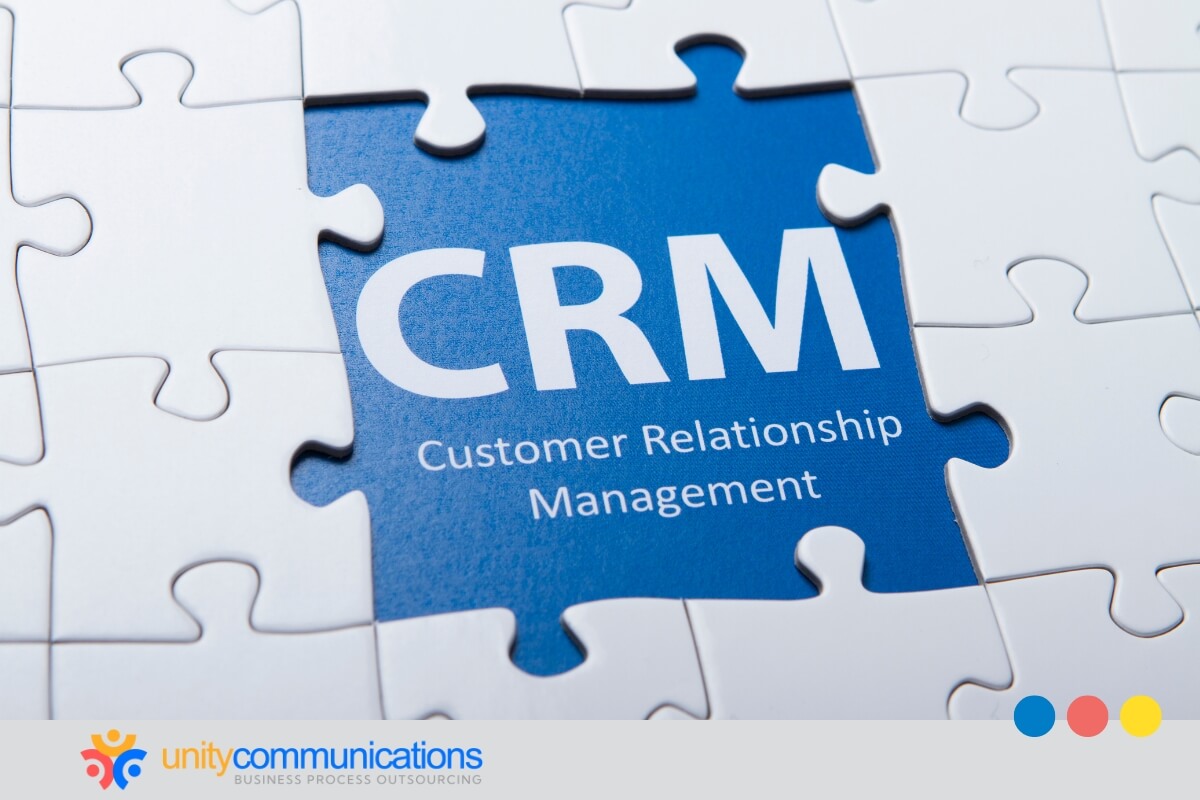IN THIS ARTICLE
Table of Contents
Did you know that 56% of customers are more likely to make repeat purchases from brands that deliver personalized experiences? However, this requires customized content, which can be time-consuming and resource-intensive to produce.
Business process outsourcing (BPO) offers a scalable, efficient, and data-driven approach to personalized content marketing. It enables businesses to achieve their goals while focusing on core operations.
If you want to learn more about the connection between BPO and content personalization, this article is for you. It explores outsourcing’s role in enhancing user experiences, especially in content personalization.
How outsourcing enhances personalized content marketing

According to Twilio’s 2023 State of Personalization Report, 56% of consumers will buy again from a brand that delivers personalized customer journeys. BPO offers unique solutions that can help elevate content personalization efforts.
What is BPO? It is the practice of contracting a third-party team to manage various non-core functions. In personalized content marketing, your BPO partner can provide the following support:
1. Leveraging data-driven insights
Data is the lifeblood of personalized content marketing. By collecting and analyzing vast customer data, you gain valuable insights into your business’s target audience.
BPO providers have specialized teams that can gather and analyze customer data from various sources, including the following:
- Website analytics (tracking user behavior on websites to understand preferences, interests, and pain points)
- Customer relationship management (CRM) systems (analyzing customer interactions, purchase history, and support tickets to gain insights into their needs and preferences)
- Social media platforms (monitoring social media conversations to identify trends, sentiment, and customer feedback)
BPO teams use insights to uncover hidden patterns, trends, customer preferences, and pain points that can inform your personalized content marketing strategies. To tailor content, your outsourcing staff can segment audiences based on the following:
- Demographics (e.g., age, gender, location, income, and education level)
- Behavior (e.g., browsing history, purchase history, and engagement with your content)
- Psychograph (e.g., lifestyles, interests, values, and attitudes)
How does this work? Let’s say you’re a tech company. The BPO team can segment your audience into developers, designers, and business users for personalized content marketing. As they study each category’s unique needs and preferences, they can better understand what each customer often reads about.
For instance, developers might appreciate in-depth technical blog posts, tutorials, and code walkthroughs. Meanwhile, designers want to read trend reports, listen to podcasts, participate in challenges, and sign up for webinars on design principles and best practices.
2. Improving content creation and curation
Outsourcing companies have dedicated writers and editors who can create content that addresses the audience’s needs and interests. Some content types they can develop are:
- Tailored blog posts and articles that address different audience segments’ specific needs and interests.
- Personalized email campaigns that include customized product recommendations, exclusive offers, and timely updates.
- Engaging social media content that includes eye-catching visuals, compelling copy, and relevant hashtags.
In addition, BPO teams can improve personalized content marketing by curating relevant subjects from various sources and tailoring them to specific consumers. This involves the following steps:
- Keyword research (identifying relevant keywords and phrases consumers use to search for content)
- Social media monitoring (tracking trends, discussions, and influential voices on social media platforms)
- Really simple syndication (RSS) feeds (subscribing to RSS feeds from industry blogs and news websites to stay updated on the latest content)
- Content aggregator tools (using tools such as BuzzSumo, Feedly, and Google Alters to discover and curate content)
Once they’ve identified relevant content, BPO teams add personalized insights, provide contextual recommendations, and create engaging calls to action (CTAs) for content marketing. The content becomes more relevant and compelling. They can do this for various channels, including email newsletters, social media, blog posts, webinars, and podcasts.
3. Harnessing automation and technology
Automation and technology have revolutionized how businesses approach personalized content marketing. BPO providers allow them to access such tools at a fraction of the cost of purchasing and managing them in-house. According to Deloitte’s 2023 Global Shared Services and Outsourcing Survey, 51% of businesses that outsource achieve digital acceleration.
Automation in the BPO industry allows teams to streamline repetitive tasks associated with personalizing content marketing. Such technology can be used for the following:
- Automating email marketing campaigns (sending targeted email campaigns based on customer behavior, preferences, and lifecycle stage)
- Social media scheduling (scheduling social media posts across various platforms to maintain a consistent presence)
- Lead nurturing (implementing automated lead nurturing workflows to guide potential customers through the sales funnel)
- Customer segmentation (categorizing customers based on various criteria to deliver personalized content and offers)
The use of artificial intelligence (AI) in the BPO industry has also grown over the years. AI algorithms can analyze vast customer data in real time, enabling highly personalized customer experiences.
BPO teams can leverage AI for personalized content marketing to deliver dynamic content, tailor product recommendations, and forecast future customer behavior. They might also use AI chatbots and virtual assistants to provide instant customer support and answer inquiries 24/7.
4. Measuring and optimizing personalized content performance
To ensure the success of content marketing campaigns, you must continuously monitor and optimize your personalization efforts. This involves tracking key performance indicators (KPIs) and making data-driven adjustments to improve results.
However, this might cause you to lose focus on core business functions that directly influence profitability and growth. BPO teams have standardized processes that allow efficient tracking and optimization of personalized content marketing strategies.
They leverage advanced analytics tools to collect and analyze data from website traffic, email campaigns, and social media interactions. By monitoring click-through rates (CTRs), conversion rates, engagement metrics, and return on investment (ROI), they can identify areas for improvement and make data-driven decisions.
Additionally, they can help you implement A/B testing to experiment with different content variations, subject lines, or CTAs. This enables you to identify the most effective personalization strategies and optimize your campaigns accordingly.
Benefits of leveraging BPO services for personalized content marketing

Beyond access to specialized expertise, technologies, and standardized processes, BPO offers other benefits that don’t necessarily directly affect your personalized content marketing efforts but help your business in the long run.
This is one reason outsourcing has become widespread across businesses of all sizes and industries. Because of the increasing adoption of the practice, the global BPO market could reach $393 billion in 2024 and grow to $491 billion by 2029.
What makes outsourcing popular? Here are the most prominent BPO advantages:
- Improved scalability and flexibility: BPO providers can quickly scale their operations to meet increasing demands for personalized content marketing efforts. They have a pool of pre-vetted professionals they can get additional staff for when needed.
- Round-the-clock support: BPO teams operate in multiple time zones, enabling 24/7 support and content delivery. This can be particularly beneficial if your business caters to a global audience.
- Lower labor costs: BPO providers actively recruit staff from areas with lower living costs, which translates to lower salaries and wages. For instance, according to Outsource Accelerator, outsourcing to the Philippines saves 70% on labor costs.
- Minimized overhead: BPO providers carry advanced technologies, so you won’t have to worry about investing in them. You can also save on rent, office utilities, equipment, and maintenance fees, as outsourcing often entails remote work.
- Focus on core competencies: With specialized BPO staff handling your personalized content marketing tasks and technologies to streamline processes, you have more time. You can attend to strategic initiatives that directly involve your products and services.
The bottom line

Outsourcing elevates personalized content marketing. It helps you deliver highly engaging and relevant experiences to your audiences while scaling your efforts and maintaining flexibility without breaking the bank.
Through BPO services, you can leverage data-driven insights and create tailored content for enhanced user experiences. It also allows you to utilize advanced automation technologies and optimize performance through analytics so you can focus on more critical business matters.
Let’s connect if you want to learn more about BPO for personalized content marketing!





